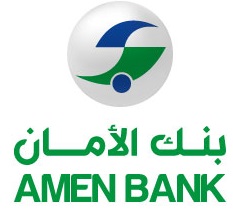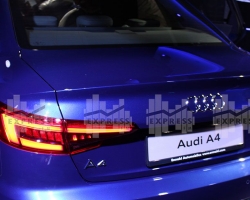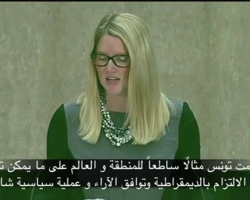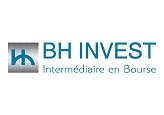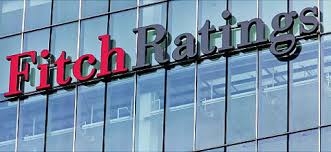
L'agence de notation Fitch Ratings a confirmé la note de défaut émetteur à long terme en devises étrangères de l'Arab Tunisian Bank (ATB) à 'BB' avec perspective stable, ainsi que le note de défaut émetteur à long terme en monnaie locale à 'BB+' assortie de perspective négative.
L'agence a tenu compte de la probabilité modérée de soutien, en cas de besoin, de l'ATB de la part de son actionnaire majoritaire, Arab Bank Plc ( notée AB et BBB-/Negative), qui détient 64,2% du capital, et accorde une importance stratégique à la banque tunisienne, en ligne avec la stratégie du groupe bancaire jordanien dans la région. ATB contribue à hauteur de 5% dans le bénéfice consolidé de Arab Bank Plc.
La note de défaut émetteur à long terme en devises étrangères de l'ATB est plafonnée par la note souveraine de la Tunisie, actuellement à 'BB' en raison des risques de change. La note à long terme en monnaie locale n'est pas soumise à cette contrainte et se situe un cran en dessus, la perspective négative reflète la perspective assignée à la note à long terme d'Arab Bank Plc, en partie justifiée par les incertitudes sur l'issue des litiges en cours aux Etats Unis, et le montant d'éventuelles amendes, précise l'agence.
Traduction Tustex.
Communiqué Fitch Ratings (En) :
LONDON, June 24 (Fitch) Fitch Ratings has affirmed Arab Tunisian Bank's (ATB) foreign and local currency Long-term Issuer Default Ratings (IDRs) at 'BB' and 'BB+', respectively. The Outlook on ATB's Long-term foreign currency IDR is Stable. The Outlooks on ATB's Long-term local currency IDR and Long-term National Rating are Negative. A full list of rating actions is at the end of this press release. KEY RATING DRIVERS IDRS, SUPPORT RATING, NATIONAL RATINGS, SENIOR DEBT ATB's IDRs, Support Rating, National Ratings and senior debt rating are driven by the moderate probability of support it could expect to receive, if required, from its majority (64.2%) shareholder, Arab Bank Plc (AB, BBB-/Negative). This is because ATB is strategically important to AB, which remains committed to the development of retail banking in Tunisia, in line with AB's strategy in the Middle East/North African region. ATB is fairly well integrated with AB, which defines the subsidiary's strategy, oversees its credit, market and liquidity risks and provides ATB with its expertise in risk management. ATB contributes for around 5% of AB's assets and operating profit. ATB's Long-term foreign currency IDR is capped by Tunisia's Country Ceiling (CC) of 'BB' due to convertibility and transfer risks. ATB's Long-term local currency IDR is not constrained by Tunisia's CC and is a notch higher than the Long-term foreign currency IDR. In line with Fitch's criteria, the agency assumes significant correlation between the risk of foreign currency and local currency restrictions being imposed in a particular country. Therefore we will rarely assign a Long-term local currency IDR more than one notch above the Long-term foreign currency IDR. The Stable Outlook on ATB's Long-term foreign currency IDR mirrors that on Tunisia. The Negative Outlooks on ATB's Long-term local currency IDR and National Long-term Rating mirror that on AB's Long-term IDR. VR ATB's VR continues to reflect the bank's weak credit risk exposure, moderate profitability, and only acceptable capital ratios in relation to its risk appetite and adequate liquidity. ATB's main risk is credit-related. Loan concentration is significant, with the 20 largest exposures accounting for 129% of ATB's Fitch Core Capital (FCC) at end-2014. The bank's impaired loans ratio is high (8.2% at end-2014) although significant loan amounts were written-off in 2014 (1.2% of loans portfolio). The bank is also significantly exposed to the Tunisian government through the holding of a large securities portfolio (21% of assets at end-2014). Fitch expects asset quality to remain fairly stable in 2015 in the absence of significant economic recovery in Tunisia. Fitch considers ATB's profitability as modest, although resilient given Tunisia's challenging environment in the past years. Pressure on margins was offset by lower loan impairment charges in 2014 because of improvements in the recovery process and the knock-on effect of the 2013 tighter regulatory loan loss reserve requirements on loan impairment charges. Fitch expects profitability to remain at moderate levels in 2015 with continuous pressure on margins, although loan impairment charges are expected to progressively stabilise in line with the slow macroeconomic recovery forecasts. Capital ratios are only acceptable given ATB's weak credit quality and high risk appetite. Fitch views risk appetite as significant given ATB's fairly loose risk control environment, basic policies and procedures, less frequent risk monitoring compared with international best practice and aggressive growth of its loans portfolio in the challenging Tunisian operating environment. ATB's loan portfolio is largely funded through customer deposits (80% of total funding excluding equity at end-2014). In Fitch's view, the fairly high deposit concentration of the bank (20 largest depositors accounted for 26% of total customer deposits at end-2014) remains manageable, as ATB maintains a sizeable liquid asset portfolio (TND1bn of unencumbered bonds at end-2014), which can be repo'ed with the Tunisian central bank. The bank also benefits from potential liquidity support from AB. RATING SENSITIVITIES IDRS, NATIONAL RATINGS AND SENIOR DEBT ATB's IDRs, National Ratings, Support Rating and senior debt rating are sensitive to changes in Fitch's assumptions of AB's capacity and willingness to support the bank. The Negative Outlook on AB's Long-term IDR partially reflects some uncertainties regarding the level of fines and the final outcome of the ruling against AB in the US. Fitch has not factored any potential loss from this litigation into AB's ratings. ATB's Long-term foreign currency IDR would be sensitive to a multi-notch downgrade of AB's Long-term IDR (most probably due to large fines related to the legal case in the US), due to Tunisia's CC currently acting as a cap, and its Long-term local currency IDR and Long-term National Rating to a one-notch downgrade of AB's Long-term IDR. The Support Rating would be sensitive to a downgrade of AB's Long-term IDR by more than two notches. ATB's Long-term IDRs would also be sensitive to any downward revision of Tunisia's CC, which is strongly correlated with sovereign risk. ATB's Long-Term foreign currency IDR will be positively affected by any upward revision of Tunisia's CC. VR A significant increase in higher-risk assets, or a severe weakening of ATB's loan portfolio quality, with a material impact on its capital ratios, would lead to a downgrade of its VR. Fitch views an upgrade as unlikely in the medium term due to Tunisia's slow recovery. The rating actions are as follows: Arab Tunisian Bank Long-term foreign currency IDR: affirmed at 'BB', Outlook Stable Short-term foreign currency IDR: affirmed at 'B' Long-term local currency IDR: affirmed at 'BB+', Outlook Negative Short-term local currency IDR: affirmed at 'B' Support Rating: affirmed at '3', Viability Rating: affirmed at 'b' National Long-term rating: affirmed at 'AA+(tun)', Outlook Negative National Short-term rating: affirmed at 'F1+(tun)' National senior unsecured debt: affirmed at 'AA+(tun)'.
Les articles associés
-
122
-
482
-
227
-
202

